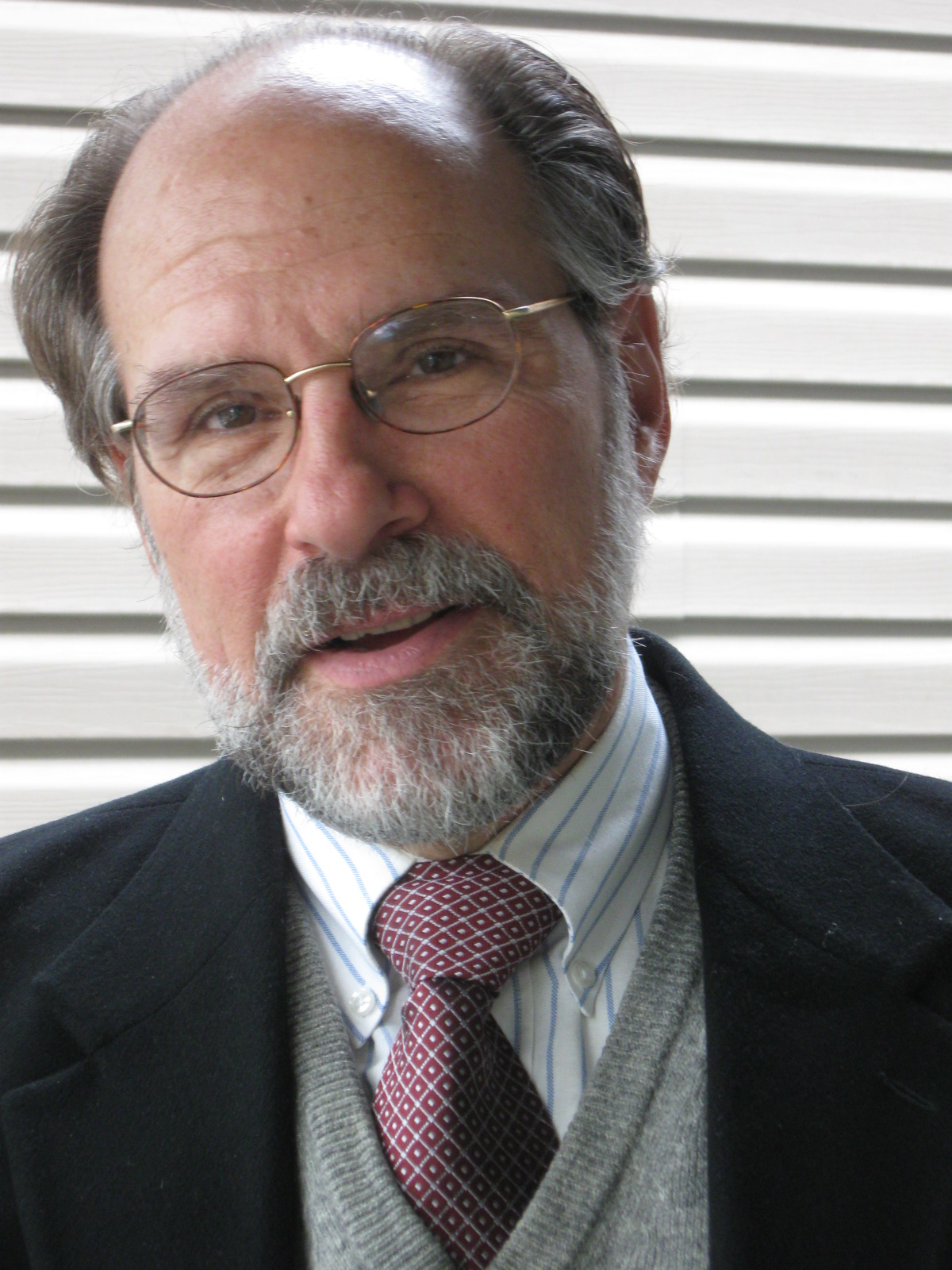The New Jersey Foundation for Open Government (NJFOG) was founded by the New Jersey chapter of the Society of Professional Journalists (NJ-SPJ), and the two organizations continue their close relationship today.
The events that led to NJFOG’s formation began in the fall of 1998, when Mark Mittelstadt, the new Associated Press bureau chief in Trenton, approached then-president of the New Jersey chapter of the Society of Professional Journalists (NJ-SPJ) Ron Miskoff and NJ-SPJ past-president and board chairman Joseph Tyrrell.
Over lunch, Mittelstadt told them he was surprised at how much harder it was to get government information and records in New Jersey than in New Mexico, his previous posting. He was also dismayed to find there was no freedom of information coalition in New Jersey. Strengthening the open records and meetings laws had been a long-time goal of the New Jersey Press Association (NJPA), a publishers group, but their efforts had not been in conjunction with other organizations. Miskoff and Tyrrell agreed with Mittelstadt’s assessment.
Since public access to information is one of SPJ’s areas of concentration, Miskoff asked Tyrrell to take the lead in organizing a meeting of potentially interested groups, both media and non-media. They were able to use News 12 New Jersey’s facilities in Raritan Center and brought in Kyle Neiderpreum, the incoming president of the national SPJ, as a speaker at their March 1999 launch. The session was well attended, and the idea of forming a coalition drew a good response from participants. Follow-up meetings were held at the NJ Citizen Action office in Highland Park and at Rutgers.
NJ-SPJ provided the organizational funds for the initiative; NJPA also contributed funding. Harry Pozycki, the former Middlesex County freeholder then head of NJ Common Cause, and Tom Cafferty, the NJPA’s long-time attorney, were instrumental in providing legal advice. Deborah Jacobs, then the executive director of the NJ ACLU, and Staci Berger, then of Citizen Action, also provided resources and input.
As an NJ-SPJ board member and editor of the chapter newsletter Behind the Lines, Guy Baehr extensively publicized these efforts and did significant original research into how New Jersey’s public records and meetings laws compared to those elsewhere.
NJFOG’s creation was officially announced in December 2000, and the organization was formally incorporated in July 2001.
New Jersey’s political framework at the time helped to pave the way for the 2001 passage of the Open Public Records Act (OPRA). When Governor Christine Whitman resigned in January 2001 to become EPA administrator, state Senator Donald DiFrancesco became acting governor until Governor James McGreevey took office in January 2002. DiFrancesco had planned to run for a full term himself but withdrew from the race. So by late 2001, when the bill came across his desk, DiFrancesco was beholden to no one in the political class.
In years of trying to gain lawmakers’ support for the law, the NJPA had not been willing to make a key concession – exempting legislators from OPRA requests. On the final day of the 2000-2001 legislative session, Guy Baehr conveyed to legislative leaders that other coalition members were willing to make that deal to gain passage of the law. Joe Tyrrell then met with then-Assembly Speaker Jack Collins to confirm this. Collins posted the bill, it passed, and DiFrancesco signed it as one of his final actions as governor. OPRA took effect in July 2002.
NJFOG continued to grow following OPRA’s passage, fueled in large part by a start-up grant from the Knight Foundation.
NJFOG’s board of trustees wishes to acknowledge and thank the founders for their advocacy and considerable volunteer effort in building the organization, which continues to expand its reach today to educate New Jersey residents about their “right to know.”
The below individuals are among those who deserve special mention.
*******
Ron Miskoff – Ron is a graduate of Rutgers College (now Rutgers University) in New Brunswick and received his Master’s of Liberal Studies from Rutgers-Newark. While at Rutgers, he was an editor of The Targum and was a member of WRSU radio. He spent many years in the broadcast industry on the air and later as a reporter for The Home News Tribune; after that he worked as a photographer for Greater Media newspapers. Ron also owned a printing company, a photo studio and a firm that provides layout services for high school and college student newspapers. In the 1980s he published a local newspaper. He has been a part-time lecturer at Rutgers since the 1980s and is now a full-time faculty member. He is also the associate director of the Journalism Research Institute at Rutgers. Ron is a former president of the New Jersey chapter of the Society of Professional Journalists (SPJ-NJ), currently serves as Treasurer for SPJ-NJ and also serves on the board of the Garden State Scholastic Press Association. Ron served as the President of NJFOG from 2009 to 2011 and is a current member of the Board.
 Joseph V. Tyrrell – Joe Tyrrell has been a journalist in New Jersey for three decades, primarily at The Star-Ledger. He currently is a free-lance writer on housing and finance, politics and the environment, animal welfare and entertainment. He is a long-time activist for transparency and accountability in government and society. Mr. Tyrrell is a graduate of Temple University who has done additional work at Rutgers University and l’Université François-Rabelais.
Joseph V. Tyrrell – Joe Tyrrell has been a journalist in New Jersey for three decades, primarily at The Star-Ledger. He currently is a free-lance writer on housing and finance, politics and the environment, animal welfare and entertainment. He is a long-time activist for transparency and accountability in government and society. Mr. Tyrrell is a graduate of Temple University who has done additional work at Rutgers University and l’Université François-Rabelais.
 Guy T. Baehr – Guy Baehr worked as a reporter at the Star-Ledger for more than 25 years before the passage of the Open Public Records Act (OPRA) in 2002. For many years he covered the paper’s transportation beat, including New Jersey Transit, New Jersey Department of Transportation and the Port Authority of New York and New Jersey. He had previously covered municipal and county government for the Herald-News in Passaic and Bergen counties.
Guy T. Baehr – Guy Baehr worked as a reporter at the Star-Ledger for more than 25 years before the passage of the Open Public Records Act (OPRA) in 2002. For many years he covered the paper’s transportation beat, including New Jersey Transit, New Jersey Department of Transportation and the Port Authority of New York and New Jersey. He had previously covered municipal and county government for the Herald-News in Passaic and Bergen counties.
After leaving the Star-Ledger, Guy taught a hands-on investigative journalism course at Rutgers for several years. Students in the course learned about the state’s new open records law (OPRA) and used it to do investigative stories about campus topics, many of which were published in the campus newspaper, The Targum.
Guy was a long-time member of the Society of Professional Journalists (SPJ), serving as president and awards chairman for the New Jersey Chapter and also as a board member and national awards chair for the national organization. He helped establish the annual Tim O’Brien Award, which honors the best reporting in any media using the New Jersey Open Public Records Act (OPRA) to expose issues of public significance. The award is made jointly by NJFOG and the New Jersey Chapter of SPJ.
As a member of NJFOG’s board of directors, he was active in the two-year lobbying effort that won passage of OPRA and later testified several times before the New Jersey Legislature on behalf of NJFOG and NJSPJ to defend against early attempts to weaken the law. He also testified in the successful effort to lower the copying fees charged under the law from 25 cents a page to 5 cents for letter-sized copies. In addition, he worked with Senator Loretta Weinberg to draft reform legislation to strengthen New Jersey’s outmoded Open Public Meetings Act.
Guy Baehr is a graduate of Wesleyan University and Columbia University’s Graduate School of Journalism and is a former Peace Corps Volunteer.

